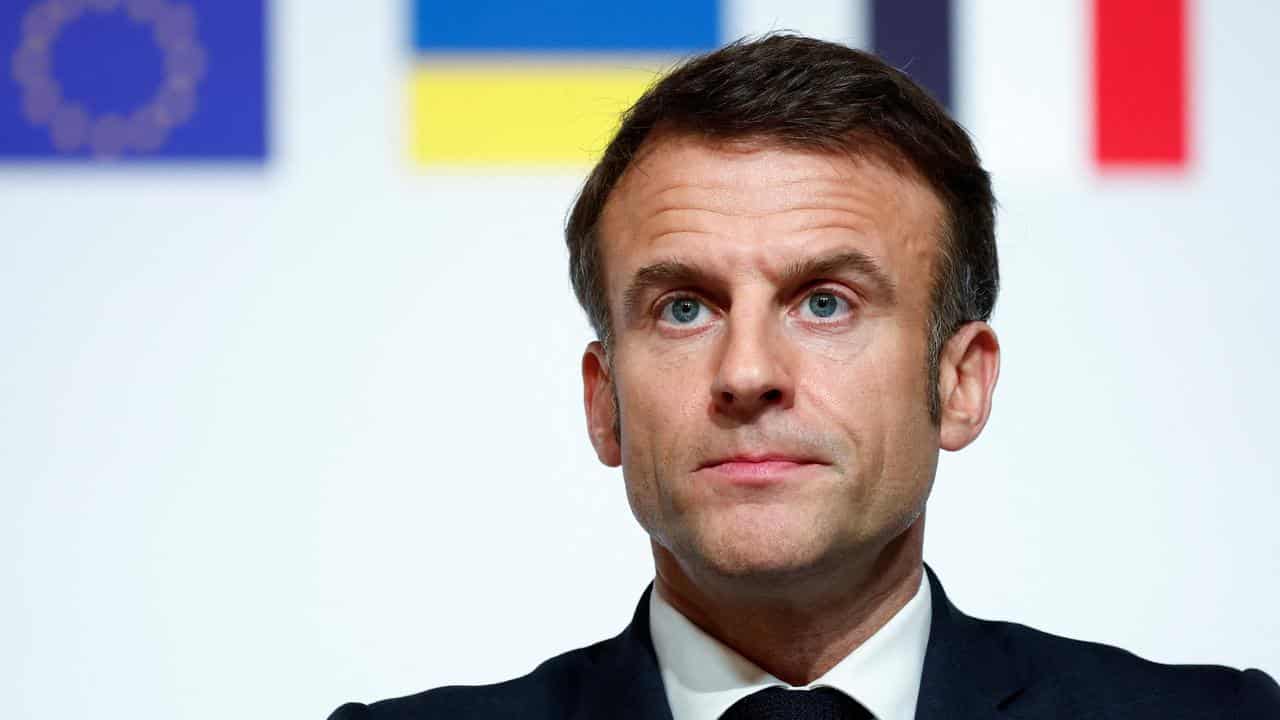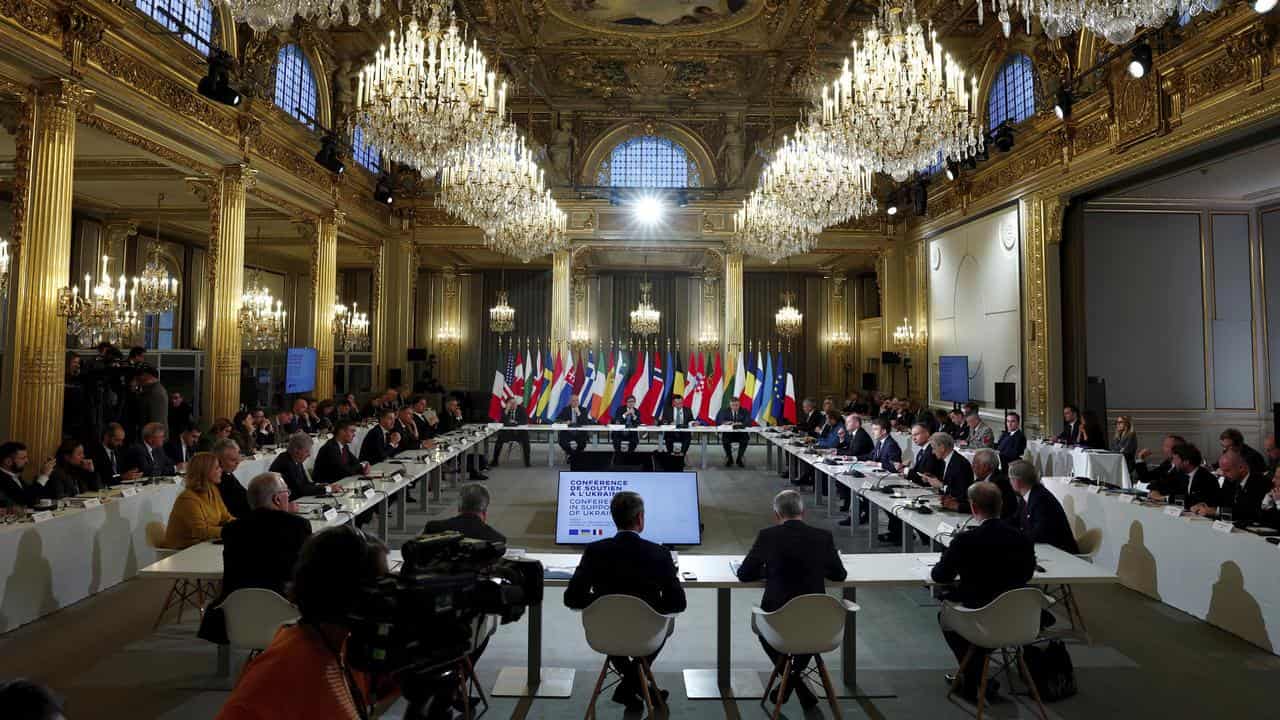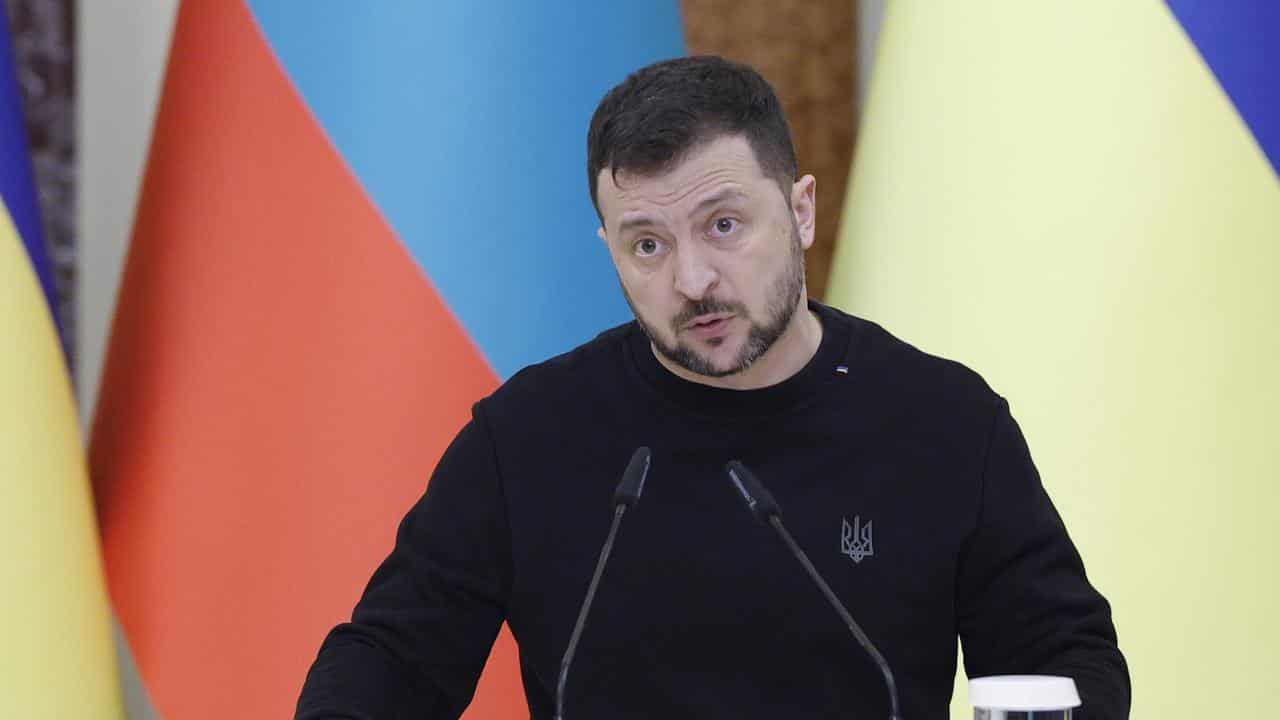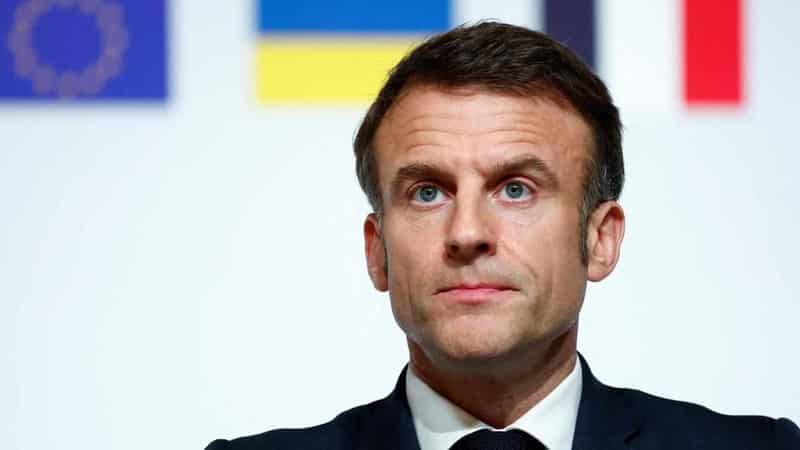
The Kremlin has warned that conflict between Russia and the US-led NATO military alliance would be inevitable if European members of NATO sent troops to fight in Ukraine.
The war in Ukraine has triggered the worst crisis in Russia's relations with the West since the 1962 Cuban Missile Crisis and President Vladimir Putin has previously warned of the dangers of a direct confrontation between NATO and Russia.
French President Emmanuel Macron opened the door on Monday to European nations sending troops to Ukraine, although he cautioned there was no consensus at this stage.
"The very fact of discussing the possibility of sending certain contingents to Ukraine from NATO countries is a very important new element," Kremlin spokesman Dmitry Peskov told reporters when asked about Macron's remarks.
Asked by reporters about the risks if NATO members sent their troops to fight in Ukraine, Peskov said: "In that case, we would need to talk not about the probability, but about the inevitability (of a direct conflict)."

Peskov said Western countries should ask themselves if such a scenario was in the interests of them and their peoples.
Macron made his comments after a meeting on Ukraine in Paris brought together more than 20 European heads of state and government and other Western officials in Paris.
Macron invited European counterparts to the Elysee Palace to discuss how to ramp up ammunition supplies to Ukraine amid what his advisers say is an escalation in Russian aggression in the past few weeks.
The meeting aimed to send Putin a message of European resolve on Ukraine and to counter the Kremlin's narrative that Russia is bound to win a war in its third year.
Addressing the leaders via video link, Ukrainian President Volodymyr Zelenskiy backed Macron's warning about an escalation of the conflict: "We must ensure that Putin cannot destroy our achievements and cannot expand his aggression to other nations."
Even talk of a confrontation between Russia and NATO - a Cold War nightmare of leaders and populations alike - indicates the dangers of escalation as the West grapples with a resurgent Russia 32 years after the 1991 fall of the Soviet Union.
Russia and the United States - the big power behind NATO - have the world's largest arsenals of nuclear weapons.
President Joe Biden has cautioned that a conflict between Russia and NATO could trigger World War III.

After the Russian invasion in 2022, Western leaders said they would help Ukraine defeat Russian troops on the battlefield and drive out Russian troops.
But that has not happened.
Ukraine's counteroffensive in 2023 failed to pierce heavily dug in Russian lines and Russia has been pushing further into Ukrainian territory just as US support for Ukraine is tangled in domestic US political debates.
Macron said nothing should be excluded as the West looked for a strategy to counter Russia, which controls just under a fifth of territory recognised as Ukraine.
"Nothing should be excluded. We will do everything that we must so that Russia does not win," Macron said.
A White House official told Reuters that the United States had no plans to send troops to fight in Ukraine, neither were there plans to send NATO troops to fight in Ukraine.
Putin casts the United States and its allies as a crumbling empire that wants to destroy Russia and steal its natural resources.
The West casts Putin as a dictator and a killer, and Putin's Russia as an enemy.
The United States has denied Russian claims that it wants to destroy Russia but Biden earlier in February called Putin a "crazy SOB" and US sources have said that Russia is planning to put a nuclear weapon in space.
with PA









